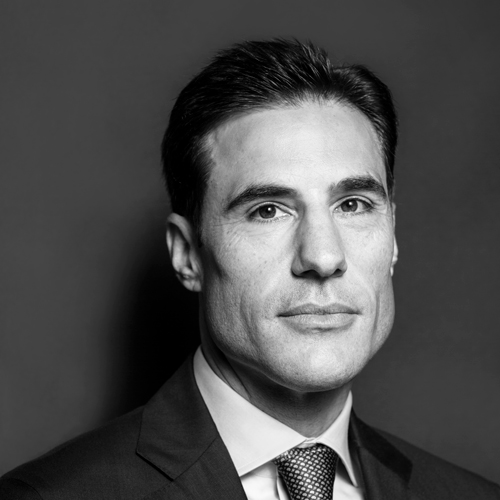
When Charles Wilkinson joined Ashland Global Holdings in 2007 (when it was known as Ashland Inc.), 55 percent of the company’s revenues were from North America, and it was in the process of transforming from an oil-and-chemicals company into a specialty-chemicals company. From 2007 to 2017, it divested its distribution, water technologies, and motor oil lines of business and acquired several specialty-chemical companies, which by 2017 resulted in 60 percent of its revenue coming from outside North America. This evolution made it imperative that Ashland improve its global trade practices in areas such as import and export control, sanctions compliance, and third-party due diligence. And, as the scope and volume of Ashland’s global trade has increased, says Wilkinson, now chief counsel of international trade and anticorruption compliance, the company has also introduced what he calls “twenty-first-century solutions.”
Wilkinson became closely involved with these efforts in late 2009, when, after having handled some significant international trade issues, he developed a white paper that recommended establishing a global trade-
management function. “Initially the idea of a global trade group was greeted by some people with skepticism and questions like, ‘Why can’t we just keep doing what we always have?’” Wilkinson says. But, after careful evaluation and planning, Ashland established a global trade group in June 2010. It has since grown to become a team of in-house experts around the world who are principally responsible for day-to-day management of global trade.
Wilkinson considered establishment of the group a significant step forward that could lead to great benefits for Ashland. For example, it recently implemented a technology to determine preferential trade treatment for the company’s products, thus saving it millions of dollars in duties. But, Wilkinson also realized, as the business grew internationally, that there was a need to identify employees who could be called on at a moment’s notice to help mitigate risks and address pressing issues in specific locations around the world. He likes to call these employees a
“rapid-response team.”
When regional issues arose previously, employees from different groups were sometimes pulled together, but they weren’t always working in a holistic manner to address the many aspects of a problem and develop a solution—or understand the ripple effect that can be created by a solution. Now, for example, if an order is detained at a border by a customs agency, a group of experts is called upon to take action: a regional commercial lawyer looks into the terms and conditions of the sale, logistics and global trade personnel determine how best to deal with the customs broker involved with the activity and the government agency that detained the goods, and accounting personnel can determine the payment status for the transaction. All this helps develop information necessary for the company to work more collaboratively with the customer to resolve the matter.
Now, in addition to global trade personnel in the United States, Europe, China, and South America, Wilkinson can call upon employees in those regions who have the requisite expertise and who he knows can assist with international trade issues. “They have a rapid-response mentality,” Wilkinson says. “They know that if I call, I urgently need their help.”
According to Wilkinson, requisite expertise includes understanding laws and regulations that apply to international trade as well as traditions and protocols of local cultures. He therefore provides training to employees involved in aspects of international trade and business, including sales and marketing, HR, auditing, customer service, logistics, and finance and accounting. He developed a four-hour in-person, interactive training course that covers anticorruption, international trade and payments, and the company’s third-party due-diligence system. Included in these subject areas are subtopics such as local anticorruption laws and the Foreign Corrupt Practices Act, export licensing, monitoring of the international financial system, US antiboycott laws, and the roles of local government agencies and US government organizations such as the Bureau of Industry and Security, the Securities and Exchange Commission, and the Office of Foreign Assets Control in cross-border transactions.
The training materials are provided in employees’ local languages, and Wilkinson has help from his global trade group and local offices to make certain the message isn’t lost in translation. Wilkinson believes the training facilitates business growth by helping trainees understand and mitigate risk, recognize potential issues, and know appropriate follow-up steps. He also emphasizes to trainees that they have resident experts in the global trade group and himself to contact with any questions or concerns they have, and they can always call Ashland’s ethics and compliance hotline for matters involving anticorruption and global trade.
In addition to rigorously training its own workers, Ashland now reviews and approves third parties such as distributors, sales agents, consultants, advisors, freight forwarders, and customs brokers through a web-based due-diligence system from Securimate. The system replaces a paper process. Through use of dedicated URLs, Ashland employees request due diligence, and third parties are invited to complete an extensive due-diligence questionnaire, and this data is then used by the system to assign a risk level for determining the type of investigation required for the third party. The technology continuously screens against 280 databases worldwide and has reduced the time for due-diligence processing by 50 percent.
All this is helping Ashland conduct its work more swiftly on a worldwide scale. “The global trade rules and regulations can change daily,” Wilkinson says. “It’s important that we have both the awareness and tools in place so that we can quickly and effectively address issues anywhere in the world.”
Photo by Patricia Wilkinson
***
Steele Compliance Solutions, Inc.:
“Charles does a masterful job of effectively managing Ashland Inc.’s international business and anti-bribery/anti-corruption program. Collaborating with Charles is truly an honor, and we are grateful for his partnership.”
—Tony Charles, Chief Client Officer
***
Lee & Ko:
“Lee & Ko is proud to partner with innovative and business-centered counsel such as Charles Wilkinson and his legal team at Ashland in Korea. Charles is a global lawyer who drives great outcomes for Ashland with his ability to manage cross-border disputes and complex international transactions.”
—John Kim, Partner


